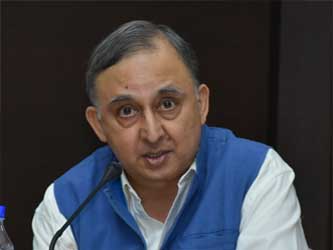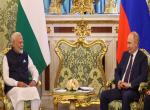On 14 November 2020, Pakistan Foreign Minister Shah Mahmood Qureshi and Director General Inter-Services Public Relations (ISPR) Maj Gen Babar Iftikhar in a joint press conference unveiled a dossier allegedly containing ‘irrefutable evidence’ of India's sponsorship of terrorism in the country.1 The underlying message was that India had become a rogue state and was indulging in state terrorism. India had four supposed objectives: putting obstacles in Pakistan's progress towards peace, economic instability, creating chaos and political instability in the country.
Some of the key allegations made were as follows:-
- India was trying to establish a consortium between the Tehreek-i-Taliban Pakistan (TTP) and various Baloch groups who were already united under the banner of Baloch Raaji Aajoie Sangar(BRAS) as part of its "grand design".
This is an incredulous allegation. The TTP seeks to establish shariah in Pakistan while the Baloch are a secular people seeking independence of their homeland from Pakistan. They have no interest in establishing shariah. How can anyone ‘establish a consortium’ of such disparate groups who are on opposing ends of the spectrum and mutually antagonistic?
India planned to "upscale terrorist activities in Pakistan" in November-December.
This allegation is actually an alibi that the Pak Establishment is creating for its possible actions against the growing strength of the Opposition united under the Pakistan Democratic Movement (PDM). Imran Khan’s government is clearly rattled by the success of the PDM rallies held so far. The army, too, is uncomfortable since the PDM has also targeted its interference in politics.
-In order to sabotage the China Pakistan Economic Corridor (CPEC) a cell had been established in RAW with the sole objective of disrupting it and the cell worked ‘under the supervision of the Indian Prime Minister’.
These allegations about CPEC are symptomatic of Pakistan’s exaggerated sense of its own importance. To project that the PM of India would be personally involved in monitoring CPEC’s disruption boggles the imagination. In fact, in India, most observers are convinced that CPEC is a white elephant, a millstone around Pakistan’s neck. So why would India want to disrupt it? In fact, rather than disrupt it, India would like to encourage Pakistan as it sinks deeper into China’s debt trap.
India was trying to create unrest in Gilgit Baltistan (GB) by fanning nationalism and sub-nationalism before and after elections; trying to subvert the perceived changes in the status of GB and planning to undertake various subversive operations.
The allegations on GB were first of all a public recognition of ‘nationalism and sub-nationalism’ and discontent prevalent in the region, something that Pakistan has tried hard to keep a lid on so far. It was also symptomatic of concerns that trying to make GB a fifth province of Pakistan could boomerang and lead to serious unrest, both in GB and so-called Azad Jammu and Kashmir (AJK). The President of AJK has already gone on record opposing such merger of the area into Pakistan since it was a part of Jammu & Kashmir. It was also an insurance policy for the expected protests against rigged elections in GB that were held on 15 November. So what better than to affix blame on India for any forthcoming unrest?
India was trying to form a link in Pakistan with ISIS by creating "Daesh-e-Pakistan".
These allegations are due to apprehensions about what the leader of the ISIS Khorasan Province or ISKP in Afghanistan, Aslam Farooqui, a Pak national, who is in Afghan custody, would have revealed during interrogation. It is believed that Pakistan has been desperately trying to get him back before the beans he spills are made public and Pakistan’s own involvement in setting up the ISKP becomes common knowledge.2 The Taliban would be extremely upset when they learn about Pakistan’s role in creating a counter-force against them in Afghanistan.
Indian embassies and consulates along the Pak-Afghan border were functioning as "hub of terror sponsorship against Pakistan".
These allegations lost all credibility when the Afghan Ministry of Foreign Affairs (MoFA) in a statement on 15 November rejected them as baseless.3 The ministry said: ‘We are committed to the policy of combating all forms of terrorism in the world without any discrimination. We will never allow Afghan soil to be used for disruptive activities against other countries.’
India had set-up multi-purpose camps for training, harbouring and launching of terrorists in Pakistan. There were 87 such camps, 66 in Afghanistan and 21 in India.
India setting up 66 multi-purpose training camps terrorists in Afghanistan is as absurd an allegation as any. With the presence of US/NATO forces, the Taliban, the ISIS and the Afghan forces how could India set up no less than 66 ‘multi-purpose training camps’ in Afghanistan?
So-called proof of Indian activities was sought to be established through several letters in Darri that supposedly talked about operational details like meetings of Indian officials with commanders of the terrorist organisations; some details of financial transactions through banking channels and some telephone intercepts.
The letters in Darri raise the obvious question of why would an intelligence agency leave a paper trail of its operations through letters? Similarly, why would an agency leave a verifiable trail by using banking channels for funding assets? And why would operational instructions be conveyed over phone? It would indeed have to be a very naïve agency to do so but as revealed in the presser itself, RAW is anything but naïve.
India was accused of links with several terrorist acts like the attack on the Pakistan Stock Exchange in Karachi on 29 June and attack on the Pearl Continental, Gwadar. As proof, the medical treatment and travel details of two individuals were provided.
Such allegations are fishing expeditions where India becomes the convenient fall guy when investigations come up with a blank. Thousands of Afghan nationals have undergone and are undergoing medical treatment in India at their own cost, given the quality of Indian medical services. Are they terrorists? What about the hundred of Pak nationals that have similarly undergone treatment here? Are they also terrorists?
Prior to Financial Action Task Force (FATF) meetings, Indian missions have lobbied extensively to undermine Pakistan’s achievements and create conditions for its grey/ blacklisting.
Pakistan still doesn’t get it that it is on the grey list not because of India but because its own anti-money laundering and countering terror financing regulatory and implementation mechanisms are woefully short of international standards. In fact, these mechanisms have been deliberately kept opaque to facilitate money laundering and terror financing. India hasn’t forced Pakistan not to comply with international standards. Pakistan has to get its own house in order by correcting its financial regime that has been deliberately created to facilitate serious international crimes.
Three similar dossiers about India’s support to terrorist groups in Pakistan were shared with the UN Secretary General in 2009, but to no avail.4 So why has Pakistan resorted to a tactic that has failed previously and why now?
Several reasons account for this.
By trying to paint India as a state sponsor of terror, the attempt is to create a narrative matching what India has been projecting about Pakistan for years. The difference, of course, is that while India has been able to present concrete proof of Pakistan’s sponsorship of terrorism in India, including Pak nationals and material, Pakistan has had to manufacture it in dossiers. Clearly, there is a wide chasm between what a concrete proof is and what Pakistan considers ‘irrefutable evidence’. Despite its ham-handed efforts, Pakistan will continue to strive to establish equivalence between India and Pakistan on the issue of terrorism.
The timing has been dictated by three forthcoming events: a new administration in the US in January 2021, India’s mutual evaluation by the FATF in 2021 and India becoming a non-permanent member of the UN Security Council in January 2021. Pakistan is trying desperately to signal to the incoming Biden administration not to deepen ties with India because under the BJP government it was becoming an extremist state.5 It is also signalling that India’s activities in Afghanistan would adversely impact the hopes for peace there and thus affecting US interests. Finally, it hopes to externalise Pakistan’s major internal discord and an economy on a slippery slope by trying to convince its domestic audience about the alleged danger from India in a desperate attempt to divert attention.
Though the allegations hardly stand the test of scrutiny, are badly drafted with glaring gaffes and factually incorrect, Pakistan will persist with such a narrative. What is dangerous is that having articulated potential internal violence in the next few months, it will try and pin the blame on India saying it had already warned the world about it. Thus, opposition political players in Pakistan and in GB as well as ulemas and prominent personalities would need to be very careful in the forthcoming months.
Such a tactic is also reminiscent of the red herring of ‘false flag operations’ repeated ad nauseam by Imran Khan and Shah Mahmood Qureshi as anticipatory bail for Pakistan’s terrorist activities in India. Fortunately for India, the alertness of its security and intelligence apparatus had repeatedly foiled such attempts, the latest being the one in Nagrota in which four Pak Jaish-e-Mohammad terrorists were neutralised and a huge cache of arms and ammunition seized. Clearly, a major operation was being planned to disrupt the local elections in J&K and also timed with the anniversary of Mumbai 26/11. Material seized from the eliminated terrorists reveals ‘irrefutable evidence’ of Pakistan’s continued sponsorship of terror in India.
Endnotes
- Naveed Siddiqui, 'Irrefutable evidence': Dossier on India's sponsorship of state terrorism in Pakistan presented, Dawn,14 November 2020, https://www.dawn.com/news/1590333/irrefutable-evidence-dossier-on-indias-sponsorship-of-state-terrorism-in-pakistan-presented; ‘Pakistan presents 'irrefutable evidence' of India's sponsorship of terror to sabotage CPEC’, Express Tribune, 14 November 2020,https://tribune.com.pk/story/2272201/india-sabotaging-cpec-supporting-terrorism-in-pakistan-fm-qureshi-and-dg-ispr
- Abhinandan Mishra, ‘Aslam Farooqi’s arrest by Afghan forces may ‘expose’ Pakistan’s role, The Sunday Guardian, 18 April 2020, https://www.sundayguardianlive.com/world/aslam-farooqis-arrest-afghan-forces-may-expose-pakistans-role
- ‘MoFA Rejects Pakistan’s Claims on Use of Afghan Soil as Baseless’, TOLO news, 15 November 2020, https://tolonews.com/afghanistan-167774
- Amjed Jaaved, ‘The Pakistan dossier unmasks India’s ugly face’, Pakistan Today, 18 November, 2020, https://www.pakistantoday.com.pk/2020/11/17/the-pakistan-dossier-unmasks-indias-ugly-face/
- See the authors article: ‘Pak will have hard time selling anti-India narrative to US under Biden’ 19 November 2020, https://in.news.yahoo.com/pak-hard-time-selling-anti-192411703.html
(The paper is the author’s individual scholastic articulation. The author certifies that the article/paper is original in content, unpublished and it has not been submitted for publication/web upload elsewhere, and that the facts and figures quoted are duly referenced, as needed, and are believed to be correct). (The paper does not necessarily represent the organisational stance... More >>
Image Source: https://thumbs.indiatvnews.com/vod/0_zz2z8f0v_big_thumb.jpg











Post new comment